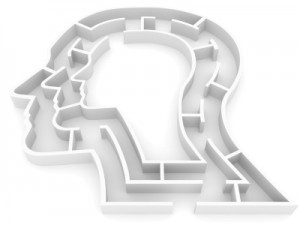 Borderline Personality Disorder (BPD) is a complex and often misunderstood psychiatric disorder. BPD behaviors can be absolutely baffling to those who witness them. People who do not suffer from Borderline Personality Disorder often have a difficult time grasping just how hard it is to communicate effectively with a loved one with the disorder.
Borderline Personality Disorder (BPD) is a complex and often misunderstood psychiatric disorder. BPD behaviors can be absolutely baffling to those who witness them. People who do not suffer from Borderline Personality Disorder often have a difficult time grasping just how hard it is to communicate effectively with a loved one with the disorder.
It can be frustrating, painful, and exhausting to traverse the unpredictable terrain of a relationship with a person who has BPD. In this article, we will attempt to shed some light on what makes people with BPD think and act as they do.
Fear of Abandonment
Let us first note that almost all behaviors associated with Borderline Personality Disorder can be attributed to a deep and unceasing fear of abandonment. People living with BPD have often experienced childhoods fraught with trauma of one kind or another: abuse either physical or psychological, loss of one or both parents, or perhaps they were adopted and struggle with feelings of abandonment by their biological parents.
No matter the origin of the fear, it persists long past childhood and becomes the driving force behind all kinds of damaging behavior. We may feel that our reassurance and commitment to our loved one with Borderline Personality Disorder speak for themselves and should be enough to assuage their fears, but applying these kinds of logical assumptions simply doesn’t address the fact that it is not possible for the person suffering with BPD to feel or act any differently than they do, no matter what amount of effort you put into trying to make it so.
Rage
People with Borderline Personality Disorder are so convinced that they will inevitably be abandoned by loved ones that their behavior can swing in disparate directions in desperate attempts to avoid the pain of loss. Frequently, loved ones are subjected to intense rage and blame attacks. This is not how we might expect a person to behave if they fear being left alone. After all, wouldn’t excessive rage and anger drive people away faster?
For a person with BPD, unconscious choices are made in attempts to avoid unpleasant feelings. Rage can be a way to preemptively strike out against a person who they believe will leave them anyway. It can provide a temporary restoration of their sense of control over their emotions. When rage is directed outward, it can mask the inner pain that is driving it.
Depression, Self-Harm, and Suicidal Gestures
Loved ones with Borderline Personality Disorder may have debilitating depression, engage in self- harmful behaviors such as cutting or eating disorders, or they may even make attempts to kill themselves. All of these are distress signals that can be seen as attempts to gain the attention and love that they feel is missing in their lives.
By behaving in ways that often alarm and frighten loved ones, the person with BPD unconsciously seeks to pull people closer to them by demonstrating helplessness and fragility that must be attended to by family members. If they cannot be left alone for fear that they will hurt themselves, they have successfully avoided abandonment.
A Final Thought
The truth is that for those of us who do not suffer from Borderline Personality Disorder, absorbing all the information in the world about the disorder may never fill the gap that we experience in trying to understand their mindset. If you have never felt an utterly debilitating fear of abandonment or the loss of all control emotionally, you simply cannot imagine what it is like.
Until a person with Borderline Personality Disorder becomes an active participant in their own recovery, developing skills to help them self-soothe and communicate effectively, they will continue to exhibit BPD symptoms.




4 Comments
Under the heading: Depression, Self-Harm and Suicidal Gestures. It states: “Loved ones with Borderline Personality Disorder may have debilitating depression, engage in self- harmful behaviors such as cutting or eating disorders, or they may even make attempts to kill themselves. All of these are distress signals that can be seen as attempts to gain the attention and love that they feel is missing in their lives.” That is absolutely outrageous! Debilitating depression (which I have), a self-harmful eating disorder (which I have) and my previous attempts to take my life are NOT used by me ‘to gain the attention and love that I feel is missing in my lives’, I have NO ulterior motive concerning the distress I experience. For example, my eating disorder, is something I HIDE from others. Do not tell me that I “lack insight”. The clinicians involved in my care would argue that I have extraordinary self-awareness.
I agree with the second-last paragraph. People without BPD can understand it only to a point. It’s not the same as living with it 24/7 every day of your life.
Pingback: Inside the Mind of Someone with BPD | MAKE BPD STIGMA-FREE!
I do agree BPD is misunderstood. This characterization of BPD behaviors doesnt
help. It further adds to the misunderstanding of BPD.
Myself diagnosed with BPD over 40 years ago. I’d like to suggest your focusing
Too much on the event and not the reason behind it. A young BPD individuals
fear of abandonment is inconceivable to you. The pure agony, almost like walking
Into the depths of hell. The specific and almost total mind body reaction to an
event in contrast to a “normal” response. Which is more measured and less
paralyzing
Let me try to give you an idea of whats it like to be a BPD individual ?
It’s to have a remarkable memory. Your mind is constantly thinking.
You have constant mild anxiety and insomnia seems chronic. Your
Memory is a bessing and curse. You remember people comments.
Not just last time or the time before, but 90 percent of every
Conversation you had with this person. You mind recalls all this
Information when your nane comes up or we interact, I’m not interacting
with anyone in the moment but rather remembering all moments at one
time. As a person with BDP the words” trial and error”take on new meaning.
My behavior is qualified by memory. If I have no experience dealing with a
situation my anxiety increases, my memory tells me whats appropriate
Behavior. Therefore, if you live long enough with BPD there wont be much
you havent encountered but the anxiety is always with you.
Let me give a couple examples
Music: The Who’s album, Who’s Next with learics “can you see the
Real me ,can you”. Form me it a BPD album.
Let me add, know a BPD by their language, they choose very specific words
and dont think before talking.
Another example:
A Movie: Troy
Behavior / Characters
BPD Achilles
NPD Paris, Agamennon
Normal Hector, Priam
Troys not usually considered a BPD movie but the behaviors are clear to see.
If you know what to look for and take their words litteral. A BPD words are
specific followed by action. A NPD words are used to fullfill their desires.
The normal people are left in disbelief by the NPDs behavior and the presence
of a BPD.